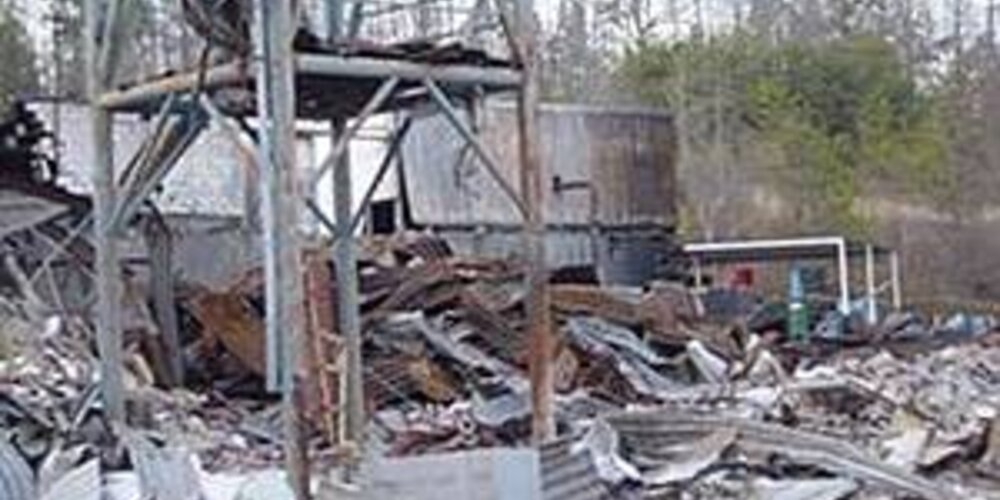TT Talk - New Year, new Code

1 January 2017 marks the start of transitional effect for Amendment 38-16 of the International Maritime Dangerous Goods (IMDG) Code. All amendments prior to Amendment 37-14 are no longer valid.
Regulations controlling the transport of dangerous goods follow a two yearly revision cycle taking account, as stated in the source United Nations (UN)
Recommendations on the Transport of Dangerous Goods - Model Regulations
, of 'technical progress, the advent of new substances and materials, the exigencies of modern transport systems and, above all, the requirement to ensure the safety of people, property and the environment'. The Model Regulations seek to set out a scheme that allows 'uniform development of national and international regulations governing the various modes of transport'. Thus, for the maritime mode, the IMDG Code provides authoritative advice on classification, stowage, segregation, packing, labelling, terminology and emergency response action.
"Amendment 38-16 to the IMDG Code may now be implemented on a voluntary basis and will become mandatory on 1 January 2018"
Amendment 38-16 to the IMDG Code may now be implemented on a voluntary basis and will become mandatory on 1 January 2018. The 2014 version can still be used, but information from different amendments should not be mixed. If the latest version is adopted, it is preferable to dispose of all older versions to avoid confusion.
Polymerizing substances
Amendment 38-16 contains many important changes, including the insertion of a new category of Class 4.1 dangerous goods 'Polymerizing substances and mixtures (stabilised)'. The image below shows the result of a 'runaway' chemical reaction that occurred in the US in 2007 and left one person dead and 14 others injured, two seriously. Windows were broken up to a third of a mile away. The polymers concerned were acrylic polymers used as paint and coating additives and as such are common substances for transportation.
A new definition states 'Polymerizing substances are substances which, without stabilization, are liable to undergo a strongly exothermic reaction resulting in the formation of larger molecules or resulting in the formation of polymers under conditions normally encountered in transport'. The revised Code states that such polymerizing substances should be classified when
- their self-accelerating polymerization temperature (SAPT) is 75 degrees C or less under the conditions (with or without chemical stabilization as offered for transport) and in the packaging, IBC or portable tank in which the substance or mixture is to be transported;
- they exhibit a heat of reaction on more than 300 J/g and
- they do not meet any other criteria for inclusion in Classes 1 to 8.
Furthermore, if the SAPT is 50 degrees or less then they are subject to temperature control. Thus, substances that satisfy these requirements, but have hitherto been classified as Class 9 or unregulated will now need to be classified as Class 4.1 (there are four new UN numbers to accommodate this).
Importantly, there is an additional Special Provision, SP386, which has been assigned to certain other classified cargoes (in addition to these new Class 4.1 entries), going into further detail about temperature control and stipulating that the person offering the substance for shipment must ensure that the level of stabilization is sufficient to prevent the substance in the packaging, IBC or tank from dangerous polymerization at a bulk mean temperature of 50 degrees C or 45 degrees for a portable tank.
There are related requirements that such cargoes be stowed on deck (stowage category D) and protected from heat. The conditions anticipated during the voyage are important, since exposure to sunlight can significantly raise the ambient temperature in the container. It is thought that such substances have contributed to serious shipboard accidents in recent times and careful planning of the stowage position and ongoing monitoring of the unit are vital.
For gases (class 2), flammable liquids (class 3), toxics (class 6.1) and corrosives (class 8) there are new requirements regarding not accepting chemically unstable substances (such as those subject to polymerization) unless precautions have been taken to prevent such polymerization (or decomposition) under normal transport conditions, further emphasising the potential dangerous consequences if appropriate measures have not been taken.
Further information about the changes brought in with the latest amendment can be sourced from the International Maritime Organization (IMO) itself or, providing additional support tools, Exis Technologies.
CTU Code linked
Finally, the IMDG Code now contains multiple references to the IMO/ILO/UNECE Code of Practice for Packing of Cargo Transport Units (CTU Code). The product of a group of experts, including TT Club, ICHCA, GSF and WSC, amongst others, the CTU Code is an important framework providing advice and information to anyone involved in freight transport. If cargo is not packed and secured in an appropriate manner the consequences can be severe, compounding any shortfall in correct classification or handling of dangerous goods.
"the CTU Code is an important framework providing advice and information to anyone involved in freight transport"
Whilst the CTU Code itself is not mandatory, by referencing it in the IMDG Code, which is mandatory, makes knowledge of the CTU Code's contents and the application of its precepts vital. The importance of the CTU Code will be re-emphasised at an event hosted by TT Club, WSC, GSF and ICHCA International at the Residence Palace in Brussels on Monday 27 February, entitled 'Safety in the Intermodal Supply Chain - Promoting the CTU Code'. A series of high profile speakers from legislators and the industry will highlight why this work is critical for anyone involved in the CTU supply chain. Further information can be found on the European Shipping Week site.
We gratefully acknowledge the assistance in the preparation of this article of Capt Richard Brough OBE, Technical Advisor, ICHCA International.
We hope that you have found the above interesting. If you would like further information, or have any comments, please email us, or take this opportunity to forward to any colleagues who you may feel would be interested.
We look forward to hearing from you.
Peregrine Storrs-Fox
Risk Management Director, TT Club
- Author
- Staff Author
- Date
- 10/01/2017





